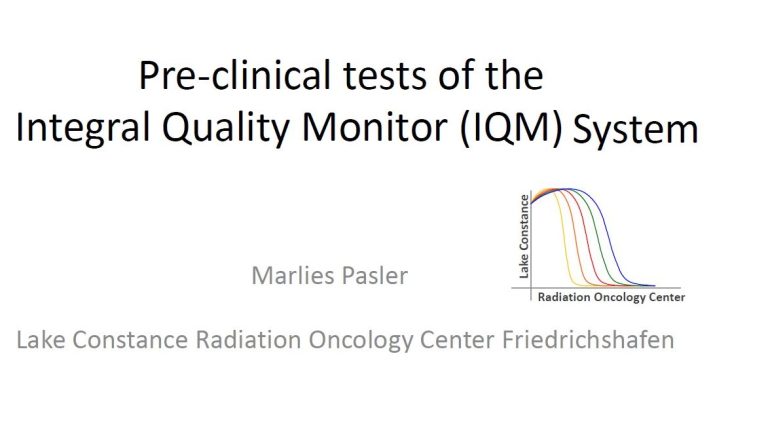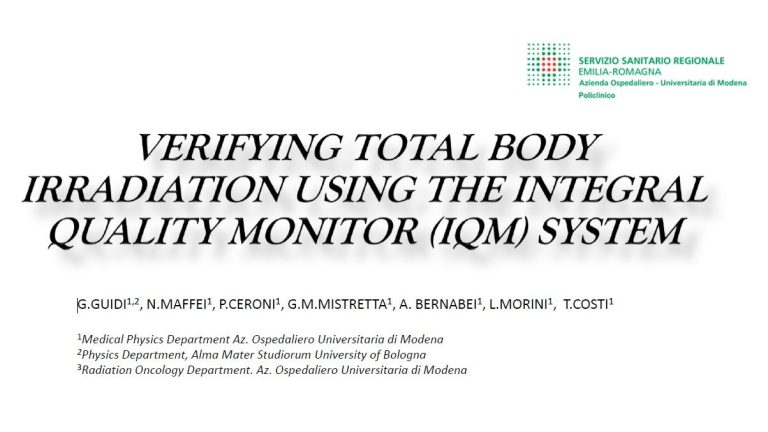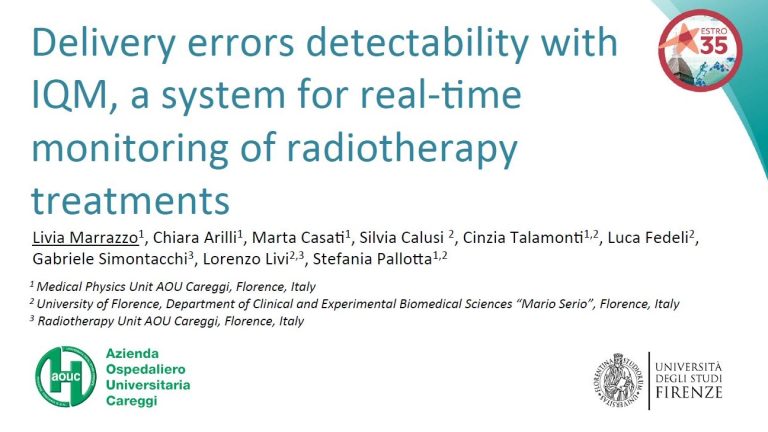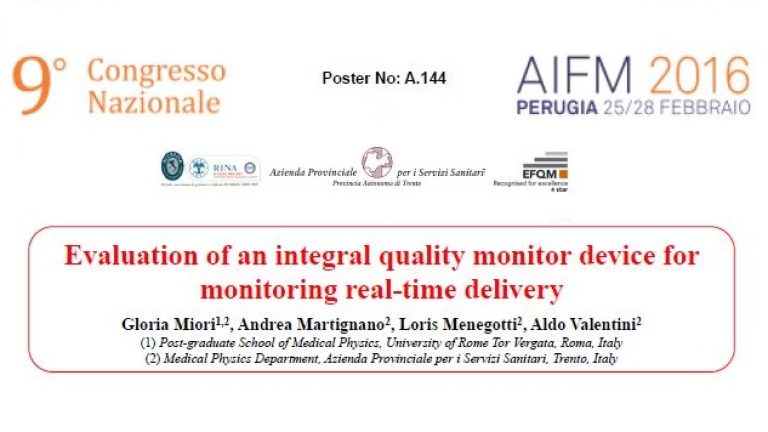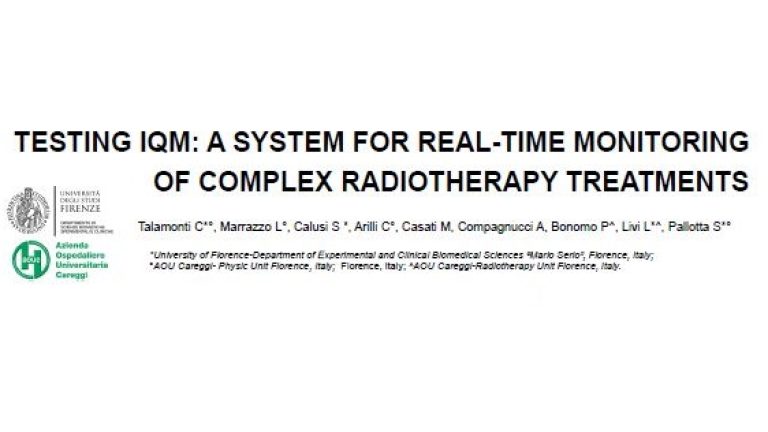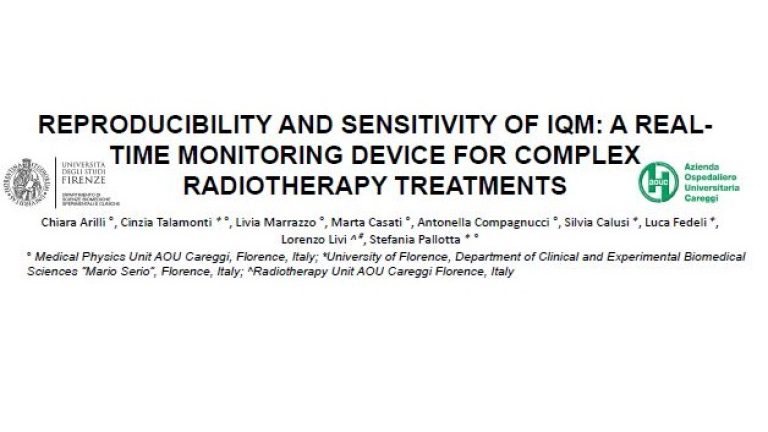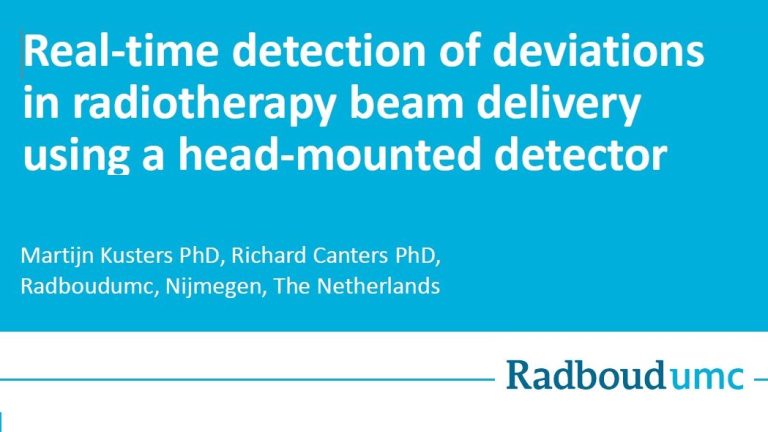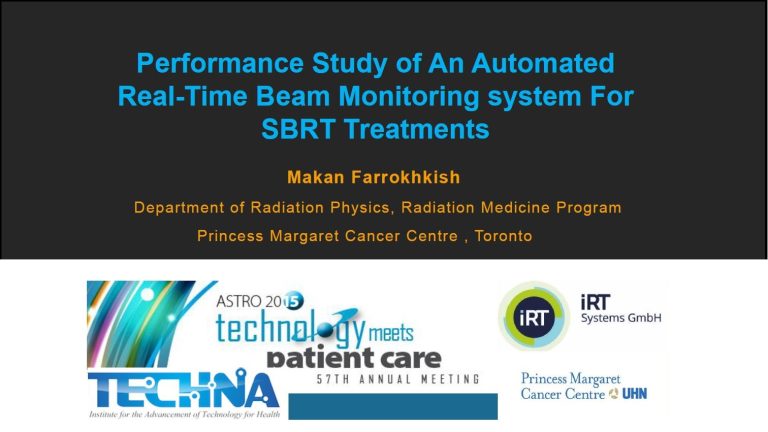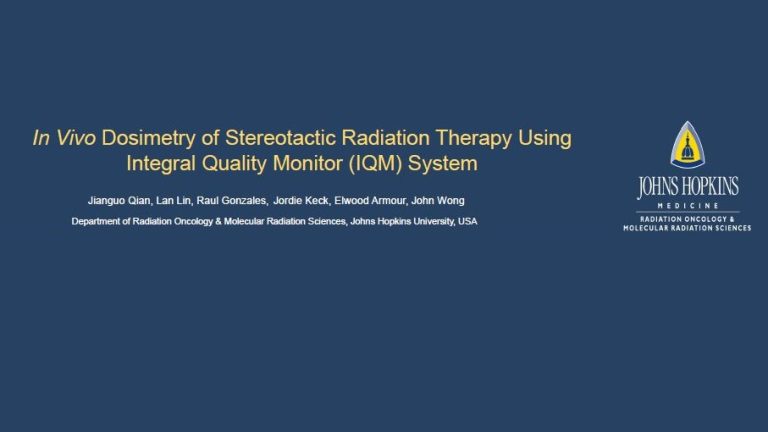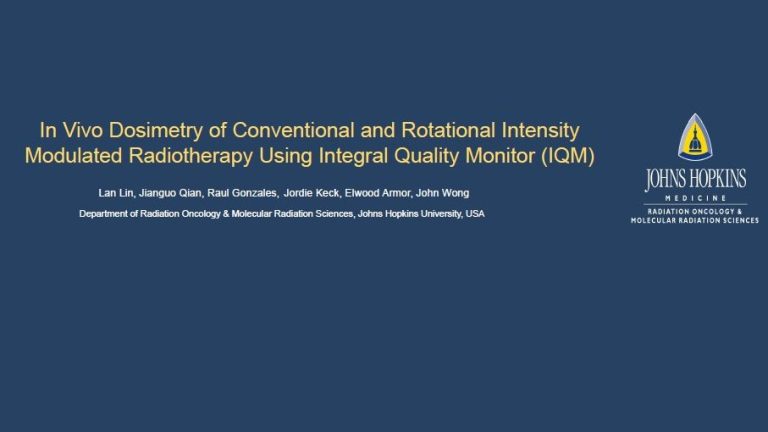Publications
The IQM System has been thoroughly evaluated by some of the world's leading radiation therapy centers.
Select your topic of interest from 15 articles, 19 posters,
19 presentations and 3 technical white papers.
Pre-clinical tests of the IQM system
Author:
Marlies Pasler, Lake Constance Radiation Oncology Center, Friedrichshafen (Germany)
Summary:
Evaluation of the potential of the IQM System to catch errors before they become clinically relevant. They also checked if IQM would help them to improve the efficiency of their processes and finally they checked if IQM would replace their current pre-treatment QA. They concluded that IQM could improve the efficiency of their workflow and that the error detection capabilities are sufficient for clinical practice.
Verifying TBI with IQM
Author:
Gabriele Guidi, et al, University Hospital of Modena (Italy)
Summary:
Evaluation of IQM for the verification of TBI treatments. They investigated the influence of the IQM Detector on depth dose curves and beam profiles for an extended SSD of 170cm. The presentation outlines the considerations that should be applied when utilizing IQM for TBI verification. They concluded that IQM can be used for TBI verification.
Delivery errors detectability
Author:
Livia Marrazzo, et al, University of Florence, AOU Careggi Florence (Italy)
Summary:
Evaluate the correlation between the changes in the detector output signal induced by small delivery errors with other metrics, such as the γ passing rate and the DVH variations. The authors concluded that IQM is capable of detecting small delivery errors and that it exhibits a good correlation with other metrics currently used to determine the quality of a treatment plan.
Integrating IQM into a commercial planning system
Author:
Bruce Perrin, et al, Christie Hospital, Manchester (UK)
Summary:
Investigation of the potential challenges when integrating IQM into a commercial planning system. They compared data measured in a waterphantom with and without the IQM detector for various energies (6,10 & 6FFF). They evaluated the IQM data against clinical models in Pinnacle 9.8 and analyzed the magnitude of adjustments assessed. They finally verified their results by delivering various treatment plans to the Delta 4 through IQM.
Evaluation of IQM for monitoring real-time delivery
Author:
Gloria Miori, et al, Azienda Provinciale per i Servizi Sanitari, Trento (Italy)
Summary:
Evaluation of the IQM System for real-time beam delivery verification. They analysed the IQM beam attenuation and IQM’s ability to detect VMAT delivery errors. They concluded that the IQM beam attenuation can be considered to be homogenous in both X and Y directions and the machine-specific beam attenuation percentage could be used to rescale treatment plan dose for clinically IQM use. IQM shows appreciable features in detecting real-time errors and for time-saving QAs
Testing IQM
Author:
Cinzia Talamonti, et al, University of Florence, AOU Careggi, Florence (Italy)
Summary:
The authors evaluated the IQM during the pre-clinical testing. She concludes that IQM provides optimal performance for signal reproducibility of complex IMRT plans. IQM is capable of detecting small errors in MU and leaf positions sufficient for clinical practice
Reproducibility and sensitivity of IQM
Author:
Chiara Arilli, et al, University of Florence, AOU Careggi, Florence (Italy)
Summary:
The authors evaluated the output signal reproducibility and sensitivity in detecting small errors in delivery parameters of IMRT step and shoot treatments using the IQM System as well as the correlation between IQM signal variations and 3Dγ, 2Dγ and DVH parameters.
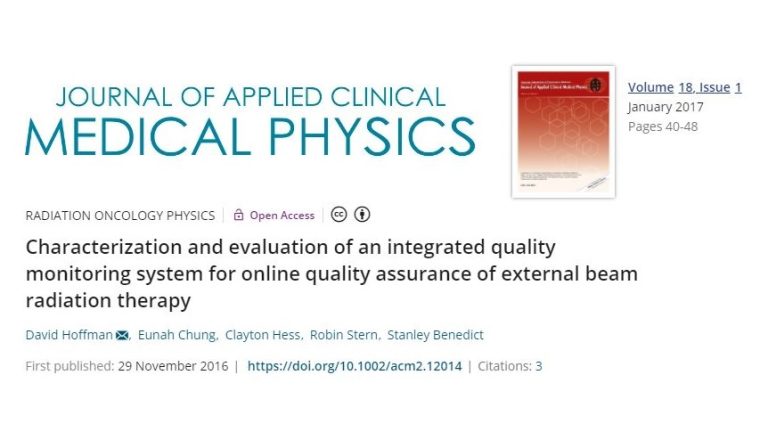
Characterization and evaluation of the IQM System
Author:
David Hoffman, UC Comprehensive Cancer Center, Sacramento (USA)
Summary:
This article outlines a comprehensive evaluation of the Integral Quality Monitor (IQM) that took place at the UC Davis Comprehensive Cancer Center throughout the year 2015.
Real-time detection of deviations
Author:
Martijn Kusters, Richard Canters, Radboud UMC, Nijmegen (The Netherlands)
Summary:
The IQM enables a clinic to do real-time, intra-fraction monitoring of beam delivery. The error sensitivity and specificity can be expected to be sufficient for clinical practice, and performs at least as well as their current equipment (Scandidos Delta 4)
Performance study of IQM for SBRT treatments
Author:
Makan Farrokhkish, Princess Margaret Cancer Centre, Toronto (Canada)
Summary:
IQM is well suited to verify state-of-the-art SBRT treatments utilizing FFF Rapid Arc treatments on a Varian TrueBeam linear accelerator
In vivo dosimetry of stereotactic radiation therapy
Author:
Jianguo Qian, et al, Johns Hopkins University, Baltimore (USA)
Summary:
The author draws the preliminary conclusion that IQM is a stable dosimetric system and can detect dosimetric deviations caused by small leaf errors in stereotactic radiation therapy. The sensitivity to leaf errors is more pronounced for relatively small fields (i.e., small targets) in SBRT. IQM appears to be more sensitive than Mapcheck2 to small leaf errors in small SBRT targets while showing similar sensitivity in relatively large SBRT targets.
In vivo dosimetry of conventional and rotational IMRT
Author:
Lan Lin, et al, Johns Hopkins University, Baltimore (USA)
Summary:
Evaluation of the accuracy, sensitivity (picket-fence test) and constancy of the IQM for conventional intensity modulated radiation therapy (IMRT) and rotational volumetric modulated arc therapy (VMAT).
SIGN UP FOR OUR NEWSLETTER
Sign up for our newsletter. Receive the latest research. Know when we install IQM in your neighbourhood. Get invited to an upcoming event.

